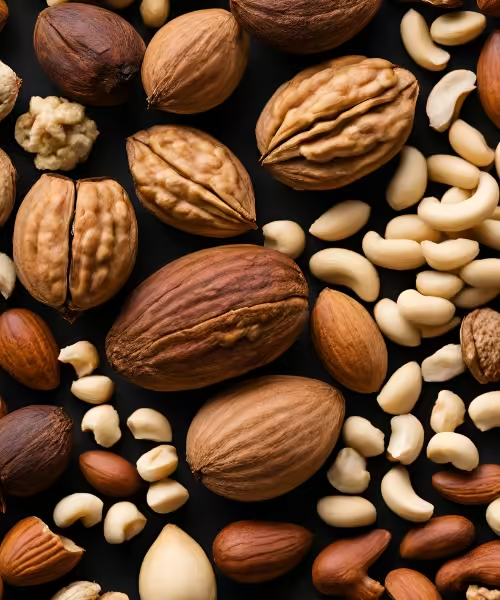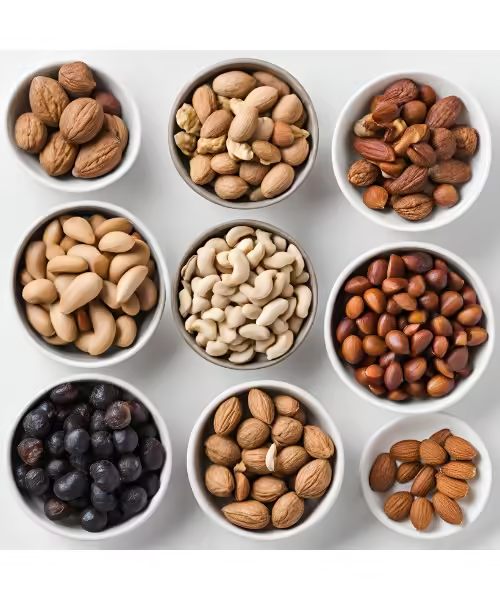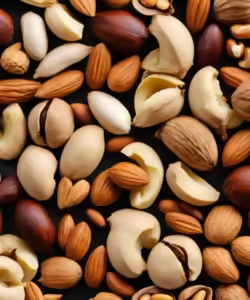National Nut Day: A Celebration of Nature’s Nutrient-Rich Powerhouses
National Nut Day is an annual event that celebrates the diverse, nutritious, and delicious world of nuts. Held on October 22nd, this National nut day has become a global occasion to raise awareness about the health benefits of nuts, promote their consumption, and recognize their environmental importance in sustainable food systems. Nuts have long been a staple in human diets, valued for their high nutrient content, versatility in cooking, and crucial role in various ecosystems.
In this in-depth exploration of National Nut Day, we’ll delve into the history of nuts, their cultural and nutritional significance, the environmental benefits of nut farming, and the growing movements around sustainable agriculture and food security that have shaped the modern celebration of this Nut day.
The Origins of National Nut Day
National Nut Day was established by Liberation Foods, a UK-based fair trade nut company, in 2015. Their goal was to highlight the importance of fair trade in the nut industry, supporting small-scale farmers and promoting ethical practices in nut production. Nuts, as a commodity, often involve large-scale farming operations that can exploit workers and degrade the environment, so National Nut Day aims to raise awareness about the importance of buying ethically sourced nuts. Over time, the National Nut day has grown in popularity and expanded beyond fair trade to become a general celebration of nuts and their many benefits.
The Nutritional Power of Nuts
Nuts are packed with a variety of essential nutrients that make them a valuable part of any diet. They are rich in healthy fats, proteins, vitamins, and minerals, and they offer numerous health benefits. Here’s a breakdown of the key nutritional components found in nuts:
Healthy Fats: Most nuts contain a high amount of unsaturated fats, which are beneficial for heart health. These fats can help reduce bad cholesterol levels (LDL) and increase good cholesterol levels (HDL), thus promoting cardiovascular health. Nuts such as almonds, walnuts, and cashews are known for their heart-healthy fats.
Protein: Nuts are an excellent source of plant-based protein, making them an important dietary choice for vegetarians and vegans. For instance, peanuts, though technically legumes, are often classified with nuts due to their similar nutritional profile and culinary uses. They are particularly high in protein and widely consumed as a protein alternative in many cultures.
Fiber: Many nuts are high in dietary fiber, which is essential for digestive health. Fiber helps regulate the digestive system, preventing constipation and promoting the growth of healthy gut bacteria. Almonds, pistachios, and hazelnuts are examples of nuts with a high fiber content.
Vitamins and Minerals: Nuts are rich in essential vitamins and minerals, including vitamin E, magnesium, selenium, and zinc. Vitamin E acts as a powerful antioxidant, protecting cells from damage and promoting healthy skin. Magnesium supports bone health, muscle function, and metabolism, while selenium and zinc are important for immune function.
Antioxidants: Many nuts contain antioxidants, which help fight oxidative stress and inflammation in the body. Walnuts, in particular, are high in polyphenols, a type of antioxidant that has been linked to reduced inflammation and a lower risk of chronic diseases such as heart disease and cancer.
The Role of Nuts in Global Cuisines
Nuts have been a staple ingredient in a variety of cuisines around the world for centuries. From Asia to Africa, Europe to the Americas, different cultures have incorporated nuts into their traditional dishes, highlighting their versatility and importance.
Mediterranean Cuisine: Nuts such as almonds, pine nuts, and pistachios are often used in Mediterranean dishes, from savory to sweet. Almonds are a key ingredient in marzipan and are also used in various sauces and desserts. Pine nuts are essential in making pesto, a popular sauce in Italian cuisine, and pistachios are used in Turkish and Middle Eastern sweets like baklava.
Middle Eastern Cuisine: The Middle East has a long history of nut consumption, particularly almonds, walnuts, and pistachios. These nuts are used in both sweet and savory dishes. In Persian cuisine, walnuts are a key ingredient in fesenjan, a rich stew made with pomegranate molasses. Pistachios are often found in desserts like halva and are used to garnish rice dishes.
Asian Cuisine: In many Asian cultures, nuts are used in a variety of ways, from cooking oils to snacks. In China, peanuts are commonly used in stir-fries and sauces. In India, cashews are a popular ingredient in both savory dishes and desserts, such as korma or kaju katli. Southeast Asian cuisines often use peanuts in sauces, as seen in Thai peanut sauce or Indonesian satay.
African Cuisine: In West Africa, peanuts (often referred to as groundnuts) are a crucial crop and a dietary staple. They are used to make peanut stew (maafe), a popular dish in countries such as Senegal and Mali. In North Africa, almonds and pine nuts are often used in tagines and couscous dishes.
Latin American Cuisine: Peanuts and other nuts play an important role in Latin American cuisine, especially in sauces and confections. In Mexican cuisine, peanuts are used to make mole sauce, a rich and complex sauce that often includes chocolate and chili peppers. In Brazil, cashews are used in both savory dishes and desserts.
Environmental and Economic Importance of Nuts
Beyond their nutritional and culinary significance, nuts also play a vital role in sustainable agriculture and environmental health. Nut trees, such as almond, walnut, and cashew trees, contribute to agroforestry systems, which are key to sustainable land use and climate change mitigation.
Carbon Sequestration: Nut trees are perennial crops that can live for decades, sometimes centuries, sequestering carbon dioxide from the atmosphere. This ability to absorb and store carbon makes nut farming an important strategy in combating climate change. Nut trees also help maintain soil health and prevent erosion, especially in areas prone to desertification.
Water Efficiency: Although certain nuts, such as almonds, have been criticized for their high water consumption, many nut species are drought-tolerant and can be grown in arid regions with minimal water use. For example, pistachio trees can thrive in dry, salty soils where other crops might struggle. Additionally, ongoing research and technological advancements are helping farmers adopt more water-efficient practices in nut production.
Biodiversity: Nut trees are often cultivated in biodiverse environments, promoting the health of ecosystems. Agroforestry systems that include nut trees encourage the presence of various species of plants, insects, and animals, contributing to a balanced ecosystem. In places like the Amazon rainforest, Brazil nut trees are a keystone species, supporting both wildlife and local communities that rely on the harvest of these nuts for their livelihoods.
Economic Impact: Nuts are a valuable cash crop for many farmers, especially in developing countries. The global demand for nuts has grown significantly in recent years, driven by the increasing popularity of plant-based diets and the recognition of nuts as a health food. This demand has provided economic opportunities for small-scale farmers in regions like Africa, South America, and Southeast Asia. Customers can guarantee that fair trade nut companies pay their farmers fairly and that they operate in humane conditions by purchasing from them.
Fair Trade and Ethical Nut Production
The rise of fair trade certification in the nut industry has been crucial in addressing some of the economic and social challenges associated with nut farming. A fair price for farmers’ products and labour methods that adhere to specified ethical criteria are guaranteed by fair trade certification.
It also promotes environmental sustainability by encouraging practices that protect ecosystems and conserve natural resources.
Liberation Foods, the organization behind National Nut Day, has been at the forefront of the fair trade nut movement. They work with smallholder nut farmers around the world, particularly in countries like Bolivia, Burkina Faso, and Malawi, to ensure that their nuts are sourced ethically and sustainably. Customers may contribute to the development of a more equitable and sustainable global food system by purchasing fair trade goods.
Health Trends and Nuts’ Increasing Popularity
The popularity of nuts has surged in recent years, thanks in large part to growing awareness about their health benefits. Numerous studies have shown that regular consumption of nuts is associated with a reduced risk of chronic diseases, including heart disease, diabetes, and certain cancers. As a result, nuts have become a central component of many popular dietary trends, such as the Mediterranean diet, paleo diet, and plant-based eating.
In addition to their health benefits, nuts have become a go-to snack for people looking for convenient, nutrient-dense foods. The rise of protein bars, trail mixes, and nut butters has made it easier than ever to incorporate nuts into daily diets. Almond butter, peanut butter, and cashew butter have become pantry staples for many households, while raw and roasted nuts are now widely available as grab-and-go snacks.
Nuts in the Future of Food
As we look to the future of food, nuts are likely to play an increasingly important role in global diets. With concerns about food security, climate change, and sustainable agriculture growing, nuts offer a solution that aligns with many of these challenges. Their nutritional density, long shelf life, and minimal processing requirements make them an ideal food source in a world facing increasing pressures on food systems.
Innovations in agriculture are also helping to make nut farming more sustainable. Advances in irrigation technology, soil management, and crop rotation are allowing farmers to grow nuts more efficiently and with fewer environmental impacts. Additionally, efforts to diversify nut production beyond traditional varieties, such as almonds and cashews, are helping to spread the economic and environmental benefits of nut farming across different regions and ecosystems.
Conclusion
There’s more to National Nut Day than merely honouring a delicious and wholesome snack. National Nut Day to honour nuts’ importance to our global culture, ecology, and economy. From their role in global cuisines to their importance in sustainable agriculture, nuts have a rich history and a promising future.
As we continue to navigate the challenges of climate change, food security, and fair trade, nuts offer a powerful symbol of how small, Natural foods may make a significant difference for our communities, the environment, and our health.
By celebrating National Nut Day, we can not only enjoy the delicious diversity of nuts but also support ethical farming practices, promote healthy eating habits, and contribute to a more sustainable food system for future generations.
Stay tuned for more updates…